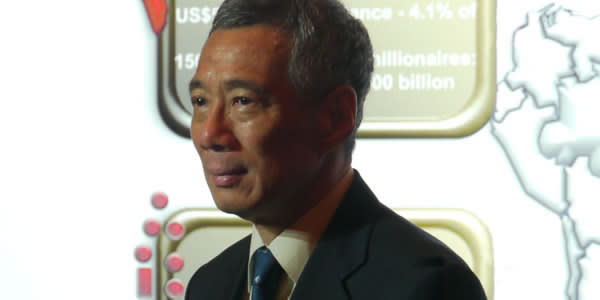PM Lee’s speech marks new phase of engagement: analysts

Political analysts said that Prime Minister Lee Hsien Loong's National Day Rally speech on Sunday signalled the Government is entering a new phase of engagement.
They noted that the issues addressed were also in response to the "bruising" general election, which saw the ruling People's Action Party (PAP) suffer its worst performance since independence, garnering only 60.1 percent of total votes.
Assistant professor Eugene Tan, who teaches law at Singapore Management University (SMU), said PM Lee's speech was an attempt to "close the ranks" among Singaporeans.
"He essentially concretized the measures the Government said it would undertake to deal with hot-button issues such as housing, employment pass and more university places for Singaporean students," he said.
PM Lee could also be seen as trying to get Singaporeans to collaborate with the Government regardless of their political affiliations, added Tan.
Echoing Tan's point, media consultant PN Balji noted that PM Lee's speech was a "reaction" to the election result, with the Government entering a "new phase of engagement".
"Whether it was in housing, online engagement or help for those caught in the squeeze, Mr Lee was signaling that times have changed. And that he and his team are entering a new phase of engagement with the people," he said.
With the rules of engagement changing overnight, Balji questioned how the various arms of Government will respond.
"We will know when the next election comes along," he said.
Pointing out the positives of the speech, Professor Tan said that by putting out specific data to the public -- for example, the number of university places for Singaporean students -- made the speech very useful and showed that PM Lee was not talking about something "abstract".
The other key area addressed during the Rally speech was the focus on the social safety net.
While previous Rally speeches were heavy on the economy, Tan said there was a shift in emphasis this time round, which showed the need to "balance economic objectives with non-economic priorities".
While the measures rolled out would address the more immediate concerns, he questioned whether it would be adequate, given that issues such as housing are dynamic and constantly changes.
However, associate professor of law at Singapore Management University Bridget Welsh said PM Lee's speech showed limited genuine understanding of the sources of discontent and that it had a "defensive tone".
"The tone was on correcting policies marginally — without a real rethink of why the policies are being questioned," she said.
But Tan disagreed on this, saying that the rally was similar to the Budget speech earlier this year and addressed issues concerning average Singaporeans.
"I didn't get that sense that he was talking down — I felt that this speech had a flavour of the budget speech, rolling out the goodies. It was a very much focused on issues that concern the average Singaporean," he said.
On the other hand, analysts said PM Lee failed to address other key issues, such as how the political system in the country would evolve.
Tan said this includes the Government's response to a more demanding electorate and how it will take onboard a diversity of views but at the same time ensuring it will not affect Singapore negatively.
In addition, Balji pointed out that PM Lee could have leveraged on the occasion to discuss how his Government will engage the Opposition.
"With more opposition members in Parliament, what kind of debate would he like to see?" he asked.
"Another question is how his Government will engage the Opposition? He could have used the occasion to tell them 'Let's build a new Singapore'".

